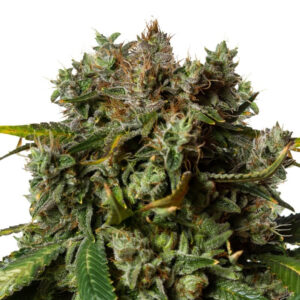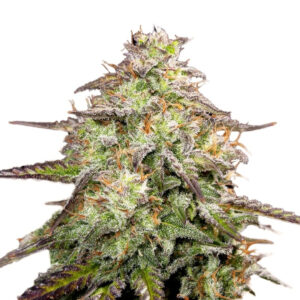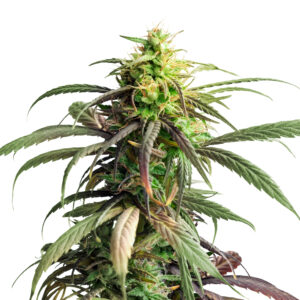As cannabis laws evolve globally, it’s crucial to recognize that many countries maintain some of the worst cannabis laws in the world. Traveling without awareness of these regulations can lead to severe legal consequences, including heavy fines, imprisonment, or worse. This guide highlights the strictest countries regarding cannabis laws and offers essential advice to help you stay safe while abroad.
The variation in cannabis laws across countries stems from diverse cultural attitudes, historical contexts, and political climates. While some nations have embraced legalization or decriminalization, others uphold harsh penalties to deter use and trafficking. Understanding these differences is key when planning international travel, especially if you use cannabis or plan to carry cannabis-related products.
While cannabis legalization is gaining momentum in many parts of the world, there remain countries where cannabis laws are extremely strict and penalties for possession, use, or trafficking are severe. In these nations, even minor infractions can lead to harsh consequences, including long prison sentences, hefty fines, corporal punishment, or even the death penalty. It is essential to be aware of these jurisdictions before traveling or considering any cannabis-related activities. Below, we highlight some of the worst cannabis laws that you should approach with utmost caution.
The United Arab Emirates (UAE) maintains some of the strictest drug laws globally. Cannabis possession or use is met with zero tolerance, regardless of the amount. Historically, the UAE has followed a strict interpretation of Islamic law, which forbids intoxicants, reflected in its harsh penalties for drug offenses. According to the official UAE government portal, penalties include mandatory imprisonment, heavy fines, and deportation for expatriates.
Even trace amounts of cannabis detected in blood or urine can be treated as possession. This means that tourists and residents alike face severe consequences if caught. There have been documented cases where individuals were imprisoned solely for failing drug tests long after cannabis use abroad. The UAE’s focus on strict enforcement is part of broader national efforts to maintain public order and safety.
Malaysia’s strict drug policies have roots in colonial-era laws that have been retained and strengthened over decades. The Dangerous Drugs Act 1952 outlines severe penalties not only for possession but also for cultivation and trafficking of cannabis.
Publicized cases have shown that Malaysian courts rarely show leniency, and corporal punishment such as whipping is still legally practiced for drug offenses. For example, the case of foreign nationals sentenced to lashes for drug possession made international headlines. The government actively runs anti-drug campaigns and maintains strict border controls to prevent drug trafficking.
The Philippines has long maintained a hardline stance against drugs, intensified under recent administrations with high-profile anti-drug campaigns. The Dangerous Drugs Act of 2002 strictly prohibits cannabis use and trafficking, imposing mandatory rehabilitation for first offenders but escalating quickly to long prison sentences for repeats.
Social stigma around cannabis is strong, and media coverage often highlights harsh penalties and drug-related violence. Despite recent efforts to explore medical cannabis legalization, recreational use remains illegal, and enforcement is strict, particularly in urban centers like Manila.
Japan’s drug laws reflect deep cultural stigma and a focus on social conformity. The Cannabis Control Law prohibits possession and use with penalties of up to 5 years imprisonment. The legal system is known for low tolerance, with courts imposing firm sentences to deter usage.
Several high-profile arrests of celebrities have reinforced the taboo nature of cannabis in Japan. Foreign visitors risk deportation, which can include permanent bans, underscoring the government’s strict stance. The public campaign against drugs is supported by media and education, making cannabis use socially unacceptable.
Indonesia’s drug policy is among the harshest globally, reflecting strong governmental and religious opposition. The National Narcotics Agency aggressively enforces anti-drug laws, with possession punishable by up to 4 years imprisonment and trafficking by life sentences or death penalty.
Cases such as the arrest and sentencing of foreign tourists have drawn international attention, highlighting the dangers of drug use or possession in Indonesia. Bali’s tourist reputation does not exempt visitors from these laws, and authorities conduct regular checks at airports and tourist areas.
Thailand recently legalized medical cannabis, making it the first Southeast Asian country to do so, but recreational cannabis remains illegal under the Thai Narcotics Act. Penalties for recreational possession and trafficking remain severe, with imprisonment and fines commonly enforced.
Despite these laws, some reports suggest occasional law enforcement leniency or corruption, yet relying on this is highly risky. The medical cannabis industry is tightly regulated, and public acceptance is growing cautiously. Tourists should not assume cannabis use is permitted and should always adhere to local laws to avoid serious consequences.
Understanding the worst cannabis laws is essential for any traveler who uses or is curious about cannabis. Laws and enforcement vary dramatically worldwide, and the consequences in these countries can be severe, including long prison sentences, corporal punishment, or death. Respecting local laws, conducting thorough research, and exercising extreme caution are vital to ensuring a safe and trouble-free travel experience.













Related Posts

Explore the synergy between CBD and sunscreen for unparalleled skin protection. Learn how CBD’s anti-inflammatory and antioxidant properties boost sunscreen effectiveness, offering a holistic approach to safeguarding skin from harmful UV radiation while promoting skin health and rejuvenation.

Growing weed comes with lots of challenges, though having to handle pests is one of the most irritating and damaging things about cultivation. One pest that has recently taken the cannabis world by storm, specifically in Europe, is stink bugs. A new kind of cannabis pest that loves weed as much as the next guy. Here’s a little explanation of what they are, as well as how to keep them out of your garden.

When some people hear the word cloning for the first time, they think that it is something that will come in the future. However, the truth is plant cloning – even marijuana cloning is a practice most weed growers do on a regular basis.
Therefore, if you are looking for answers on how to clone a marijuana plant, this is the right place to be. Before we look at the various ways on how to clone marijuana plants, it is important to know what cloning means.